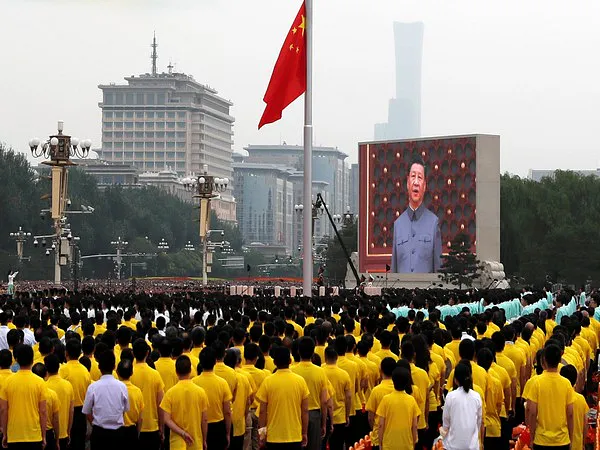As the 20th National Congress comes closer, the arrest of former Chinese public service employees taking bribes will be helpful for China’s President Xi Jinping to consolidate his authority over the party, a media report said citing analysts.
On September 23, a Chinese court sentenced the former Vice Minister of public security, accused of taking over 646 million yuan bribes, to death.
The former Vice Minister, Sun Lijun has been stripped of all his political rights and all his personal property was confiscated, according to Global Times.
Xi has steadily consolidated power, reducing space for dissent and opposition since becoming party general secretary a decade ago.
Ahead of the 20th National Congress, scheduled for October 16-18, the Chinese authorities have beefed up the security arrangements in and around Beijing and have been carrying out frequent security checks on buses and trains, The Hong Kong (HK) Post reported.
The objective of this exercise is to detain ‘petitioners’ and ‘activists’ travelling from other provinces to Beijing to seek redressal of their grievances by submitting petitions at the office of the Chinese Communist Party (CCP).
Police have also been conducting regular searches at all guest houses/hotels to detain such ‘petitioners/activists’. Submission of petitions is part of an administrative system to hear grievances and complaints.
Earlier, the reports came that China will probably increase the security in Beijing, ahead of National Day celebrations to mark the 73rd anniversary of Communist Party rule on October 1.
As China is scheduling its celebration around Tiananmen Square and other prominent sites in Beijing, the authorities are afraid of protests during the holiday period, according to the HK Post.
According to the publication, demonstrations are also possible in Hong Kong. However, police are planning to deploy heavily in the territory and will most likely quickly disperse any protests that occur.
Meanwhile, Xi is facing serious human rights criticism on international platforms and from around the world as the UN released its report highlighting “serious human rights abuses” — and potentially crimes against humanity — committed by the Chinese government in Xinjiang.
China had urged the UN not to release the report, calling it a “farce” arranged by Western powers. But investigators said they found “credible evidence” of torture possibly amounting to “crimes against humanity”.
The report was formally called the Office of the United Nations High Commissioner for Human Rights (OHCHR) Assessment of human rights concerns in the Xinjiang Uyghur Autonomous Region, the People’s Republic of China, released on August 31.
Meanwhile, the International community has serious concerns about China’s designs. Riding on the wings of its dazzling economic growth, the PRC has advanced not only the Belt and Road Initiative (BRI) projects, but also a series of military ones: the modernization of the nuclear arsenal, the rollout of new stealth, cyber and artificial intelligence warfare technologies, the construction of the world’s second-largest blue-water navy, and the building of new overseas bases, reported the HK Post.

